Effective Rosacea Treatment Services
Many people experience rosacea, a condition marked by facial redness, bumps, and pus-filled pimples. According to the National Rosacea Foundation, it affects over 16 million Americans, yet many go undiagnosed.
Unlike allergies or eczema, rosacea worsens if left untreated. A dermatologist at Advanced Dermatology, P.C. can provide an accurate diagnosis and effective rosacea treatment. While there’s no cure, treatment can manage and lessen symptoms.
To learn more, contact us today or continue reading below.
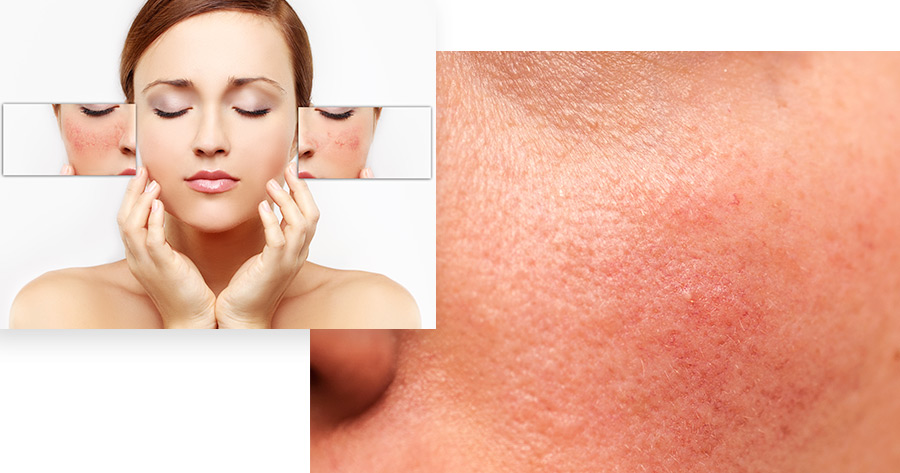
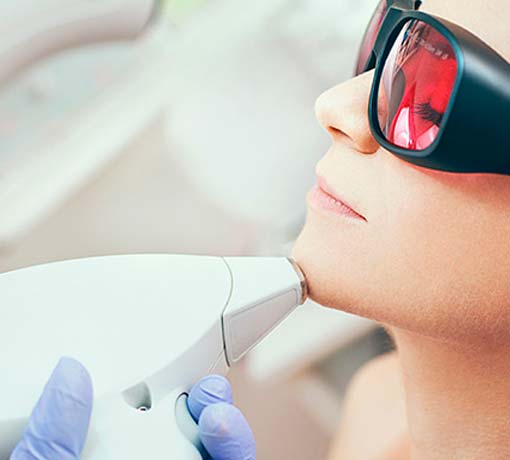
What Is Rosacea?
Rosacea is a chronic inflammatory skin condition that primarily affects the central face. It’s characterized by flare-ups and remissions.
While rosacea can develop at any age, it typically begins after age 30 as flushing or redness on the cheeks, nose, chin, or forehead that may come and go. Studies have shown that the redness tends to become ruddier and more persistent over time, and visible blood vessels may appear.
There are four main subtypes of rosacea, each with slightly different characteristics:
- Erythematotelangiectatic rosacea: This is the most common subtype, causing facial redness, flushing, and visible blood vessels.
- Papulopustular rosacea: This subtype causes small, red bumps and pustules, like acne, to develop on the face.
- Rhinophyma: This subtype mainly affects men and causes the nose to become enlarged and bumpy.
- Ocular rosacea: This subtype affects the eyes, causing redness, dryness, irritation, and stinging.
Rosacea Causes
Doctors and researchers are still determining what exactly causes rosacea. Many, however, believe that rosacea stems from a combination of hereditary and environmental factors.
Several factors can contribute to its development, including:
- Genetics: Rosacea is more common in people with a family history of the condition.
- People with fair skin are more likely to develop rosacea.
- Sun exposure is a major trigger for rosacea flare-ups.
- Certain medications, such as corticosteroids, can worsen rosacea.
- Alcohol consumption: Alcohol consumption can trigger rosacea flare-ups.
- Spicy foods can trigger rosacea flare-ups.
- Hot drinks can trigger rosacea flare-ups.
- Emotional stress can trigger rosacea flare-ups.
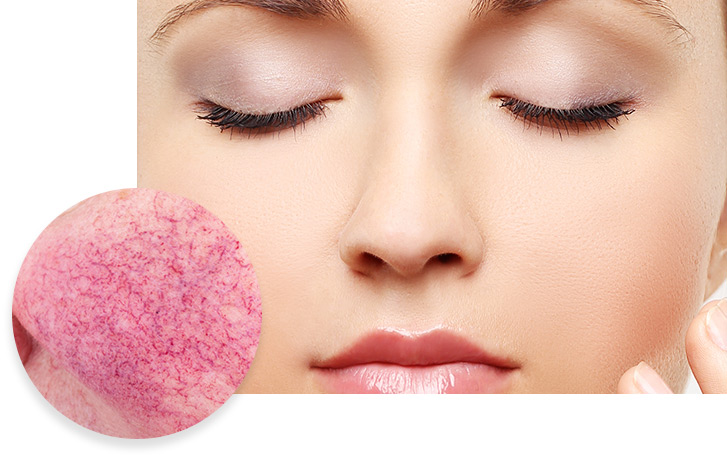
What Causes Rosacea Flare-Ups?
A surprising number of everyday things can trigger flare-ups. While the exact cause of this condition remains unknown, identifying your triggers is critical in managing the condition. These can be broadly categorized into nine main areas.
Common causes include:
- Food: Certain foods, like spicy dishes, aged cheeses, and even some fruits, can cause flushing and worsen symptoms.
- Drinks: Alcohol, particularly red wine, and hot beverages like coffee or tea can trigger flare-ups.
- Temperature: Avoid extremes. Saunas, hot baths, and excessively warm environments can all trigger rosacea. Conversely, cold weather, strong winds, and humidity can also be problematic.
- Sun: Sun exposure is a major trigger. Sun protection is essential to prevent flare-ups.
- Medications: Certain medications, including vasodilators and topical steroids, can worsen this condition. Talk to your doctor about possible alternatives.
- Other Medical Conditions: Underlying medical conditions like frequent flushing or menopause can sometimes contribute to flare-ups.
- Emotions: For many people, stress and anxiety can be significant rosacea triggers.
- Skin Care Products: Harsh cosmetics, hairsprays with irritating ingredients, and some fragrances can trigger flare-ups. Choose gentle, fragrance-free products formulated for sensitive skin.
- Physical Activity: While exercise is generally good for health, strenuous workouts or activities that cause excessive sweating can trigger rosacea in some individuals.
Understanding these potential triggers and adjusting your lifestyle can significantly reduce the frequency and intensity of rosacea flare-ups.
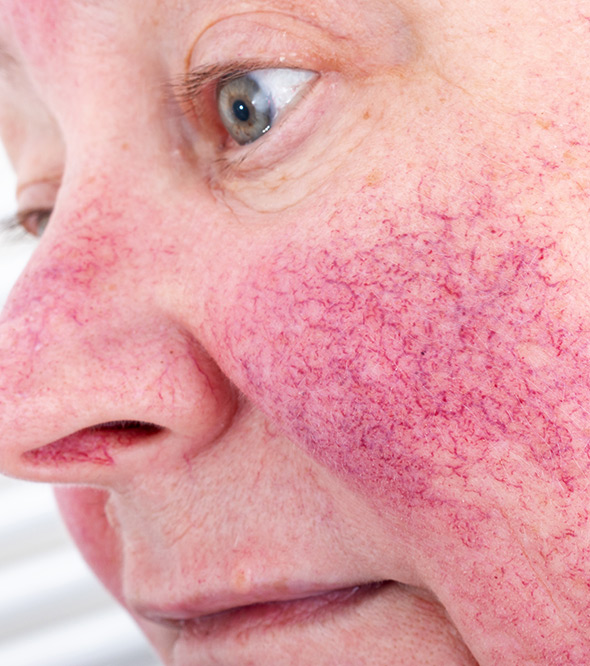
Rosacea Symptoms
Rosacea can manifest differently for each person, but there are some common symptoms to watch out for. Unlike eczema or a food allergy, rosacea can worsen if left untreated.
A dermatologist can provide an accurate diagnosis and effective rosacea treatment. Here’s a breakdown of the key symptoms of rosacea on the face:
- Facial flushing and redness: This is often the first sign, appearing as blushing or redness on the cheeks, nose, chin, or forehead. Over time, the redness may become more persistent.
- Bumps and pimples: Small, red bumps and pus-filled pimples can develop, sometimes resembling acne.
- Visible blood vessels: Tiny blood vessels on the cheeks and nose may become enlarged and visible.
- Burning or stinging: The affected area may feel hot, tender, or irritated.
- Dryness: The skin can become rough, scaly, and dehydrated.
- Swelling: In some cases, the skin may become puffy or swollen.
- Thickening skin: In severe, untreated rosacea, the skin, particularly on the nose, may thicken.
Rosacea Triggers
Several factors can trigger rosacea flare-ups, including:
- Sun Exposure: UV rays can aggravate rosacea, so using sunscreen and avoiding excessive sun exposure is essential.
- Hot or Cold Weather: Extreme temperatures, whether hot or cold, can trigger rosacea symptoms.
- Hot Drinks and Spicy Foods: These can cause the blood vessels in the face to dilate, leading to redness.
- Alcohol: Red wine, in particular, can trigger flare-ups.
- Stress and Emotional Upset: Stress, anxiety, and other strong emotions can worsen rosacea.
- Exercise: Strenuous exercise that leads to overheating and increased blood flow can trigger symptoms.
- Certain Skin Care Products: Products containing alcohol, witch hazel, fragrance, menthol, peppermint, and eucalyptus oil can irritate the skin.
- Medications: Some blood pressure medications, including vasodilators, can exacerbate rosacea.
- Hot Baths and Saunas: Heat and steam can trigger flare-ups.
- Dietary Factors: Some people find that certain foods, such as dairy products, chocolate, and foods containing cinnamaldehyde (like tomatoes, citrus fruits, and cinnamon), can trigger their rosacea.
- Hormonal Changes: Hormonal fluctuations, such as those occurring during menopause, can worsen rosacea symptoms.
- Skin Care Routine: Over-exfoliating or using harsh cleaning techniques can irritate the skin.
Managing Rosacea Triggers
Rosacea can be a frustrating skin condition, but the good news is you can manage it.
A key aspect of keeping this condition under control is identifying and avoiding your personal triggers. Why does rosacea flare up on your skin? There are a surprising number of factors. Here is a comprehensive guide to help you navigate the world of triggers and achieve calmer, clearer skin.
- Food & Drink: Spicy dishes, aged cheeses, alcohol (particularly red wine), hot beverages, and histamine-rich foods like citrus fruits can all be potential triggers.
- Environment: Sun exposure, hot weather, cold winds, and humidity can worsen symptoms.
- Lifestyle: Stress, anxiety, strenuous exercise, and certain medications can all contribute to flare-ups.
- Skin Care Products: Harsh cosmetics, alcohol-based products, and fragrances can aggravate rosacea-prone skin.
The best way to identify your triggers is to be a detective. Here are some tips:
- Keep a Journal: Track your daily activities, food and drink intake, and any symptoms you experience. Over time, you may see patterns emerge.
- Introduce Changes Gradually: If you suspect a particular food might be an issue, try eliminating it for a few weeks and observe your skin’s response. Reintroduce it slowly to confirm if it’s a trigger.
Once you’ve identified your triggers, it’s time to take action:
- Food & Drink: Limit or avoid trigger foods, opt for lukewarm beverages, and stay hydrated.
- Environment: Sun protection is crucial. Use sunscreen daily and seek shade during peak sun hours. Dress in weather-appropriate clothing for hot or cold conditions.
- Lifestyle: Manage stress through relaxation techniques like meditation or yoga. Consider alternative exercises if strenuous activity triggers flare-ups. Discuss any medications with your doctor to see if potential alternatives exist.
- Skin Care: Choose gentle, fragrance-free products formulated for sensitive skin—patch-test new products on a small area before applying them to your entire face.
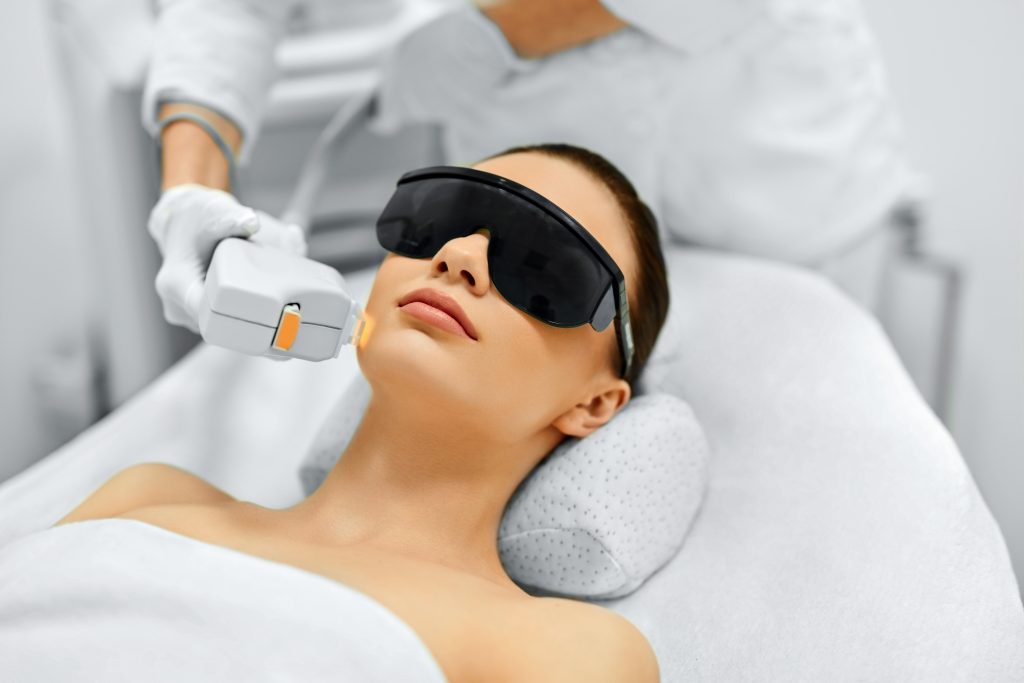
Explore Your Options: Rosacea Treatment by a Dermatologist
Antibiotics for Rosacea
One treatment option for rosacea is antibiotics, which come in both oral and topical forms.
Antibiotics kill bacteria on the skin, which helps reduce inflammation, the number of pimples, and overall redness. Your dermatologist will prescribe the type of antibiotic that is best for your rosacea, depending on the severity of your condition.
People with mild rosacea may only require a topical antibiotic applied directly to the affected areas. For more severe cases, oral antibiotics may be necessary. It typically takes 3 to 4 weeks of consistent use to see improvement in your rosacea symptoms.
It’s important to remember that antibiotics that work for one person may not be effective for another. Be sure to discuss any side effects you experience with your dermatologist, such as nausea, vomiting, diarrhea, or vaginal yeast infections.
More serious side effects are rare, but contact us immediately if you experience difficulty breathing, develop a rash, or experience swelling of the face, throat, or lips. Reviewing before and after rosacea treatment results can also provide insight into treatment effectiveness and potential side effects.
Laser Treatment for Rosacea
Laser treatment is another option for treating rosacea, particularly for those with severe redness and visible blood vessels.
This treatment targets and destroys tiny blood vessels beneath the skin with concentrated light beams. The laser emits predetermined wavelengths of light absorbed by the blood vessels, causing them to heat up and disintegrate.
Depending on the severity of your rosacea, you may need multiple laser treatments (usually at least three) to achieve optimal results.

Different types of lasers are used to target specific rosacea symptoms. For instance, the Nd:YAG, pulsed dye (PDL), and KTP lasers effectively reduce redness and visible blood vessels. In cases with skin thickening on the nose and cheeks (rhinophyma), erbium: YAG and CO2 lasers may be used.
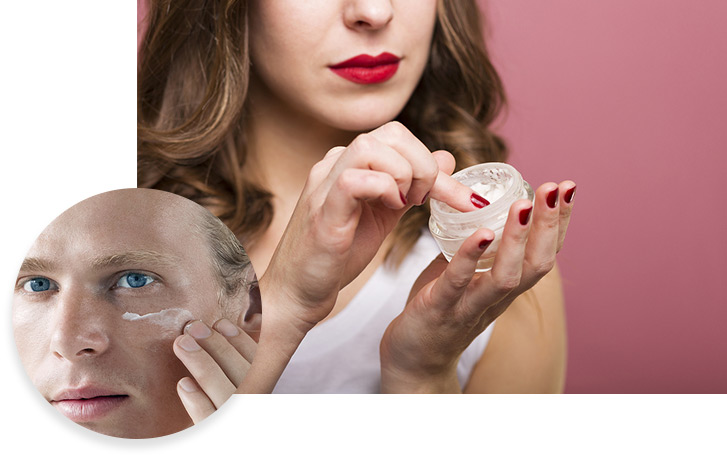
Laser treatments are generally well-tolerated, with most patients describing the discomfort as similar to a rubber band snapping on their wrist. To ensure your comfort, a topical numbing cream can be applied before the procedure.
There’s no downtime associated with laser treatment, and you can resume your daily routine immediately afterward. However, it’s normal to experience some swelling and redness after the treatment, which typically lasts 2 to 6 hours but can persist for up to a day.
